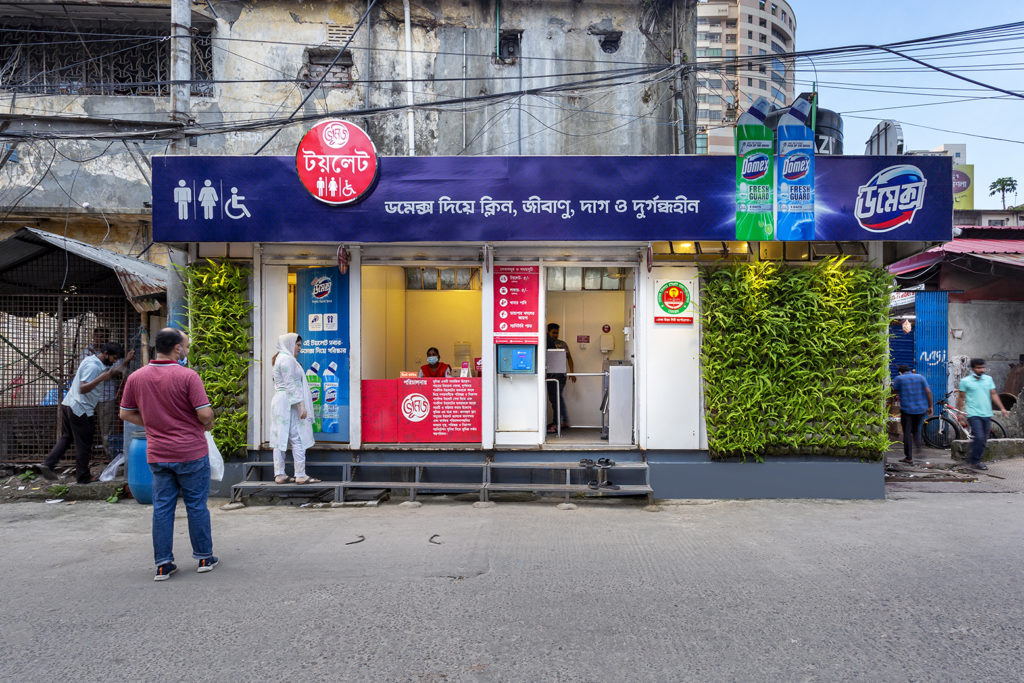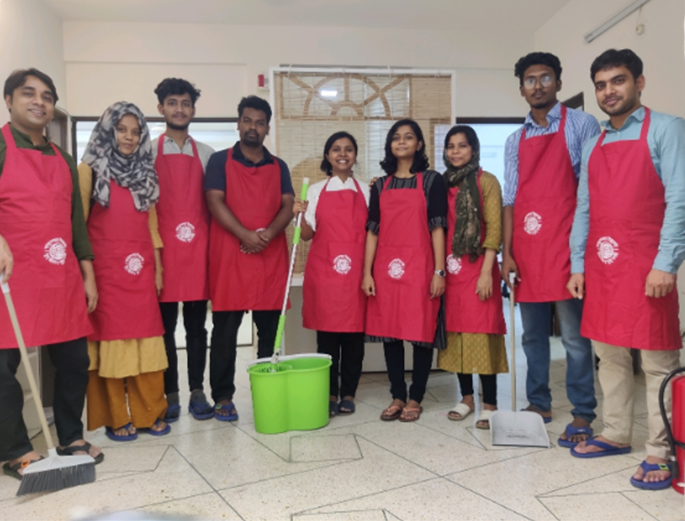Bhumijo is a social start-up working to ensure hygienic, inclusive and affordable public sanitation. The company runs a network of public toilets and washrooms serving low-income areas in Dhaka, Bangladesh.
For the over five million people who commute daily on the roads of Dhaka, there are less than 50 usable public toilets. The detrimental effects are mostly borne by low-income populations and women, who often spend 12-16 hours a day outside their homes. As per a survey conducted by Bhumijo, 80 per cent of women in Dhaka report not drinking, or drinking less, water due to the absence of usable public toilets. This contributes to UTI conditions and other kidney related diseases. Inefficient infrastructure and poor management are identified as key reasons for poor public toilet conditions.
The GSMA are supporting Bhumijo to digitalise the operation of their public toilets. With the grant, Bhumijo will trial a suite of technologies including a touchless entry system, and integration of an Android mobile application for users to pay for an associated subscription and get awareness content on hygiene.
We caught up with Farhana Rashid (CEO) and Masud Islam (COO), Bhumijo co-founders to discuss their expectations for how their solution will evolve in the next few years.
What need does your service cater to?
Bhumijo provides hygienic, inclusive and affordable smart toilets in low-income areas by either building new toilets or renovating and managing existing facilities. Bhumijo centres provide different services, besides toilets, such as showers, clean drinking water, laundry, refreshments and advertisement space, all at an affordable price. These services are available through a subscription model or pay-per-use. Our centres offer a separate section for women, ensuring their privacy and safety. We also pride ourselves in having well-trained staff and uniquely designed spaces ensuring a great user experience. Currently, we serve 7,000 people daily in 30 sanitation centres in Dhaka and Benapol.
We have established standard operating procedures for cleaning, revenue collection, staff training and troubleshooting across these centres. In one of the facilities, we piloted a technology-enabled management system which includes automated entry – with tripod turnstiles, access control and RFID card readers, and a drinking water ATM. The initial experience has created convenience both for the users and our management team.
Based on this pilot, we are developing an enhanced digital toilet management system. The solution enables digital payments, automatic entry, sensor-based real-time monitoring and auto flushing, replacing most of the manual work. With support from GSMA, the toilet management system will be tested at our WASH centres. By the end of the project period, we expect to have a technically sound solution to scale up our business.
What are the challenges you expect to encounter in deploying the solution and with digital adoption?
In the beginning, we expect that customers might have issues using the system as most of our subscribed users do not own a smartphone. Uptake in digital payments might also be low in the first few years. To solve this challenge, we will issue subscription cards to those without smartphones and ensure that we conduct user training to increase adoption of the system by our customers. Since the technology is comparatively new, even to our staff, we shall also arrange training for them.
Due to the current electricity crisis in Bangladesh, characterised by frequent power cuts, we might not get consistent data from the digital systems. We hope to have in place a power backup system to keep the solution running.
We also expect some challenges to arise after deployment. However, our team will handle troubleshooting as we gather lessons from this test.
What are you expecting to learn through the GSMA project?
We hope to identify which digital solutions work better in terms of functionality and cost. Collecting cash manually at some of our centres and managing these cash flows has remained one of our biggest challenges. Through digital payments and real-time tracking of users, we hope to better track our revenue, ensuring business sustainability.
So far, we have managed to identify appropriate hardware to deploy the system and our experience in operating WASH facilities helped us define the software specifications faster.
How do you see your business model evolving?
During our business journey, we realised the need to incorporate technology to improve service and scalability. With support from the GSMA, we intend to digitalise our entry and payment systems and improve the quality of our services through remote monitoring, complemented by the Bhumijo management team.
On average, each Bhumijo centre serves 6200 people per month, with 200 customers being monthly subscribers and the rest as pay-per-use. We hope to scale the business countrywide and reach more customers. The Dhaka Metro alone has more than 180 markets that do not have clean toilet facilities. We also intend to venture into hospitals and transport hubs where demand for affordable, hygienic sanitation facilities is high.
What partnerships have you formed, and what partnerships do you hope to form in the near future?
We already have partnerships with some city corporations and other government institutions such as the Dhaka North City, Narayanganj City, Benapol City, and the ICT division of the Dhaka Medical College Hospital. These partnerships have enabled us to operate facilities developed by government and build new toilets on public land. Going forward, we will need to partner with other government agencies such as transport authorities to expand our business in bus and train stations.
We are in discussion with Robi, a mobile operator in Bangladesh, for them to provide internet services, therefore supporting digital payments at our centres. There is also a business opportunity for MNOs to provide internet and mobile connection at these centres. Bhumijo can offer branding space and create more awareness on the use of internet and smartphones, especially among low-income customers. This will in turn increase the customer base of MNOs.
What needs to happen to make this product/ service scale and become sustainable?
We are keen on establishing more government partnerships to increase the number of Bhumijo centers across the country. We are also looking for development partners to cater for the capital cost of building and operating these facilities. Private partners, coupled with funding, will help us improve our technology, build team capacity and increase our marketing efforts, in turn improving our services and revenue.
THIS INITIATIVE IS CURRENTLY FUNDED BY THE UK FOREIGN, COMMONWEALTH & DEVELOPMENT OFFICE (FCDO), AND SUPPORTED BY THE GSMA AND ITS MEMBERS.






